Political crisis and pro-Russian sentiments - Ukrainian journalists assess Georgia's political realities
Journalists from the Ukrainian edition of Zaborona visited Georgia at the height of the political crisis.
Full version on the Zaborony website
July 5, 2021. In the center of Tbilisi, on Shota Rustaveli Avenue, several dozen aggressive young men were beating journalists. There was supposed to be a “Tbilisi Pride” that day – a march of representatives and sympathizers of LGBT + people. However, the march did not take place – the representatives of “Tbilisi Pride” admitted that it was simply unsafe to take to the streets.
Prior to that, Prime Minister Irakli Garibashvili directly called on potential participants of the Pride not to participate in the event. Their opponents came anyway. They smashed the Tbilisi Pride office, tore down and burned the rainbow flag, and, later, tore off and burned the EU flag in front of the Georgian parliament building.
The police did not interfere with the aggressive attackers in any way. About 50 journalists were seriously injured that day, and one of them was found dead a few days later. His relatives believe that he died because of the beating.
“For me, July 5 is a point of no return”, says Margarita Akhvlediani, editor of the JAMnews project. “This is the day when it became clear that the situation in Georgia had gone over the edge and it might never be possible to go back from this”.
The crisis in Georgia has been going on for several years.
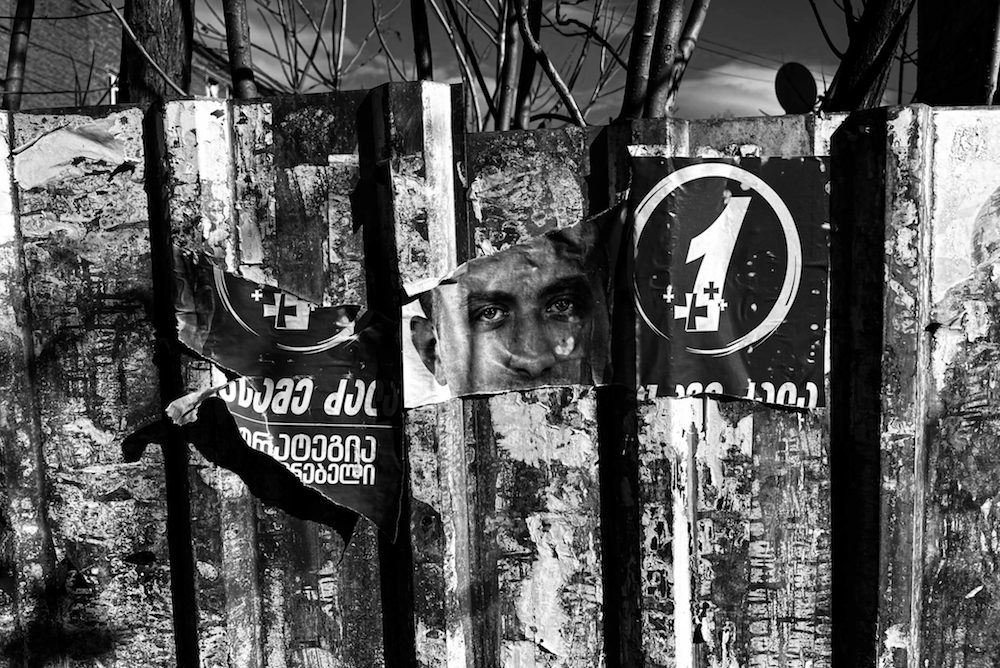
“People are divided into “kotsi”- supporters of the Georgian Dream, and “natzi”- supporters of ex-president Saakashvili’s party [“kotsi” is short for “Kartuli Otsneba” – the name of the ruling party in Georgian; “natzi” is short for United National Movement]”, says Margarita Akhvlediani. “This division is very sharp. You can even be thrown out of a taxi if your point of view [on political events in Georgia] does not coincide with the point of view of the taxi driver. At a party, you may be asked who you are: “kotsi” or “natzi”? Families fall apart, friendships collapse. Even the level of domestic violence has even increased”.
Saakashvili factor
The Georgian Dream office is located opposite the pedestrian glass Peace Bridge, which was built during Saakashvili’s presidency. Any cellular communication completely stops working within a radius of 200 meters around the party building. The PR service of the Georgian Dream did not respond to Zaborona’s request for comments from representatives of the party or parliament.
The office of the United National Movement is located almost at the exit from Tbilisi, on the way to the airport. Here the doors are open at any time of the day and several dozen people are constantly sitting there – watching the news and keeping order. The atmosphere there is a bit like one in the Kiev mayor’s office during the Euromaidan.
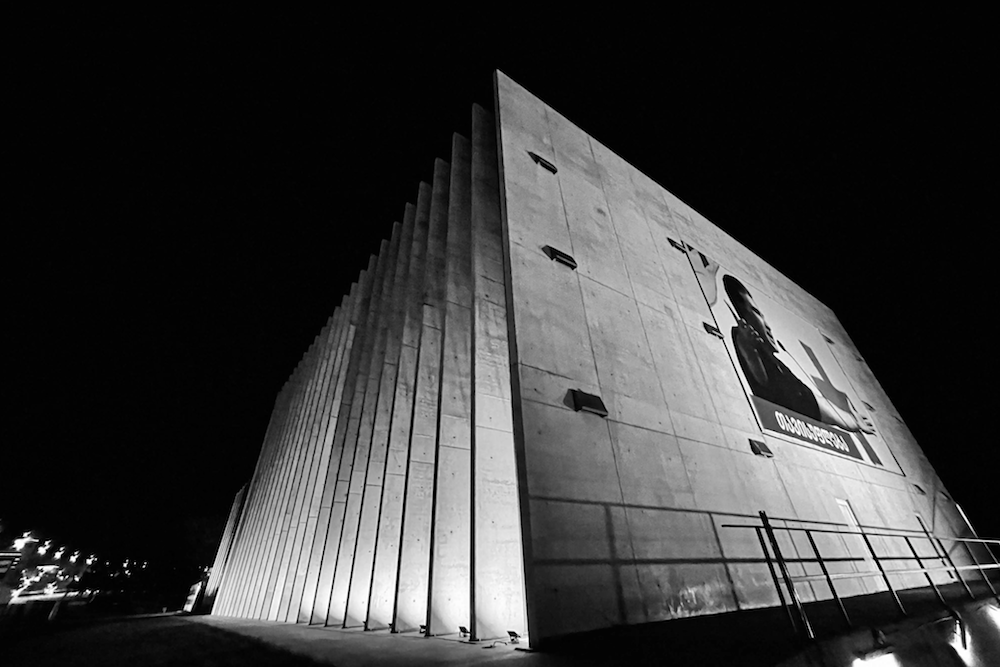
“The last time we [Saakashvili] and I met in Kyiv, we talked for a very long time”, says Khatia Dekanoidze, one of the leaders of the United National Movement. “He kept saying that he wanted to return to Georgia to help get rid of Ivanishvili”.
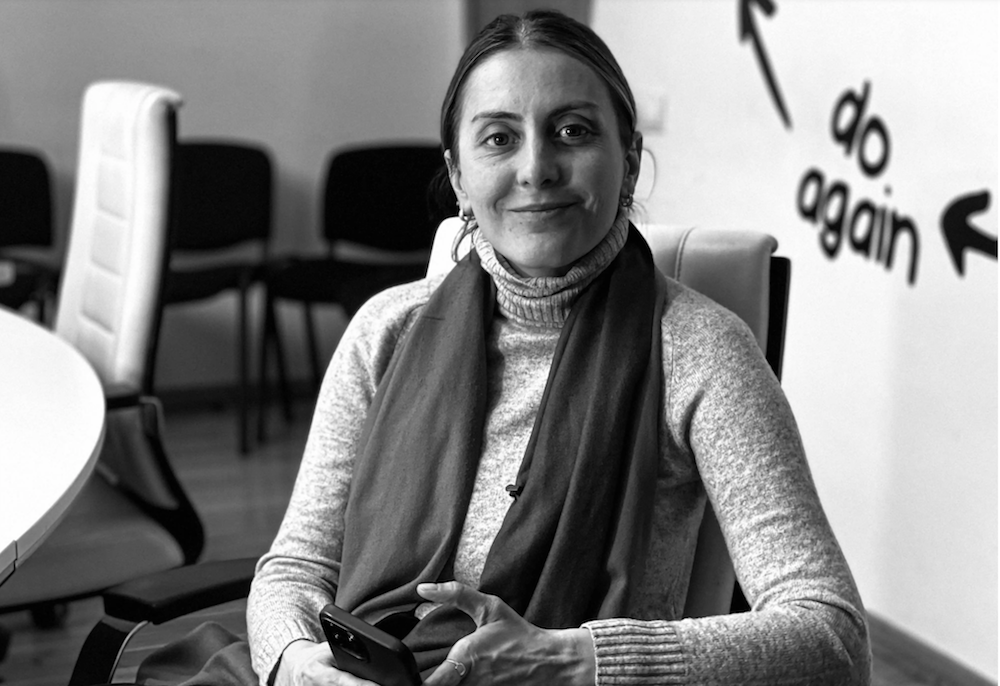
“When I first saw him in custody, I asked: Did you understand that this was a very big risk? And he replied: “Yes, I was free, I worked, I had everything, but I did not have that special freedom, which is very important for me – this is my homeland, Georgia. And, to be honest, I understand him”.
Immediately after the arrest, Saakashvili went on a hunger strike. He was tricked into transferring to a prison hospital – and later footage appeared on YouTube of him being forcibly dragged across the hospital hall. Opposition parties unanimously demanded the release of Saakashvili, and people took to the streets of Tbilisi to protest.
It seemed that Saakashvili’s arrival would help the opposition gain votes. Moreover, the first round of elections, which took place on October 2, was rather successful for the opposition – the mayoral candidates in the major cities of Tbilisi did not manage to gain more than 50%, so a second round was announced. In Kutaisi, where Khatia Dekanoidze ran, she was even ahead of the Georgian Dream candidate by 2% in the first round.
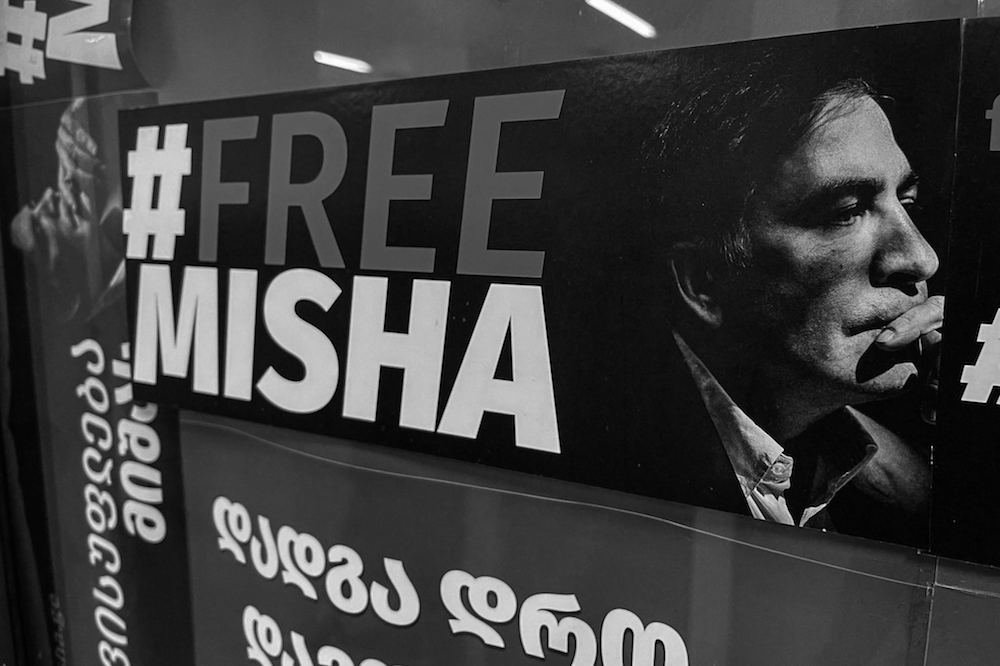
But Margarita Akhvlediani is sure that the figure of Saakashvili is too toxic for Georgia. There is no unequivocal attitude towards the former president – they either love him or hate him – even his supporters admit this.
“Saakashvili changed Georgia radically, he made a completely different country out of it”, the journalist explains. “He did not only change roads, fought corruption, solved problems with light. He changed the people’s mentality. But at the same time, he turned many against himself. We paid for the victory over criminals with the fact that Georgia took second place in Europe in terms of the number of prisoners. People could be in prison for six years because they stole a pot from a factory. This is a very high price to pay. I do not presume to argue now whether it was worth paying such price, but a very large number of people think that it was not”.
Margarita says that many people were annoyed that posters in support of Saakashvili were brought out. According to her, the antipathy towards the former president is so strong that many decided not to vote for the opposition, thinking that “it’s better to have Georgian Dream than Misha again”.
“I think there could have been such people”, agrees Khatia Dekanoidze. “But at the same time, I think that Saakashvili [by his return] has proved that he is really ready to die for Georgia”.
Margarita Akhvlediani believes that the reason for the return of the former Georgian president is more prosaic – Saakashvili was deeply offended by the fact that he was left out of work in his homeland: “He was the president of the country, a reformer, a man the whole world was talking about. It is impossible for such a person to remain a regional politician [as he was in Ukraine]”.
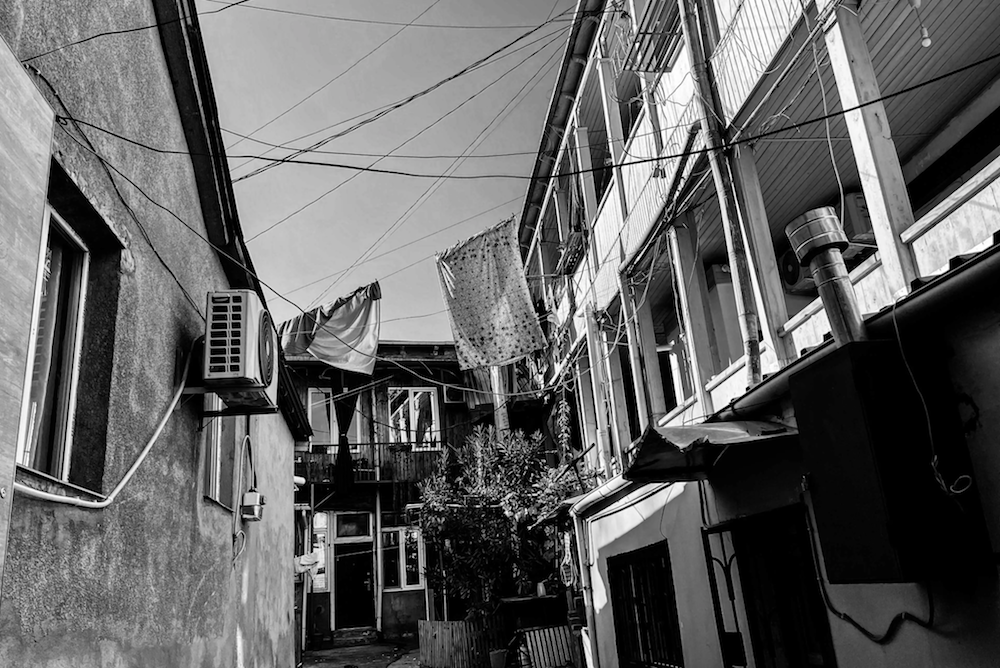
Pro-Russian sentiments and violence
Georgia is a very patriarchal, religious and traditional country. Loyalty to family and traditions is very important here, and priests in the villages are still the most influential and respected people. Amid strong conservative sentiments, pro-Russian movements are gaining popularity in Georgia.
“From the very beginning of [Georgia’s] independence, there have always been people who tried to get into politics and pursue Russia’s interests”, JAMnews editor Dmitry Avaliani explains. “There was, for example, the former head of the KGB [Igor] Giorgadze, who fled from Georgia, or the head of Adjara [Aslan] Abashidze, who was very friendly with the Kremlin. Now the Kremlin is betting on conservative forces. They declare closeness to the church, to traditions and are strongly anti-Western. They say that the main enemy of Georgia is the West, and it must be fought against. Hence, point two follows – only Russia can help us to fight the West, it is a single-faith, Christian country that protects traditional values”.
“For many years – even before Saakashvili and after the Georgian Dream came to power (since 2010), large investments have been made in the information field of Georgia”, adds Margarita Akhvlediani. “This is a soft power that actively conquers local media and creates outlets of its own. They work in the Georgian language and in every possible way praise the people of Georgia – extraordinary and exceptional, which greatly spoils Western influence”.
One of the most prominent of such pro-Russian platforms is the Alt-Info TV company and Internet platform, which has now created its own political party, the Conservative Movement. The party has already been registered by the Georgian Ministry of Justice.
The chairman of this party, Zurab Makharadze, refused to communicate with Zaborona – he did not like the article on sexual crimes and Russian influence in the Georgian Church. “For the conservatives, the church is the main ally that helps them a lot”, says Dmitry Avaliani. Alt-Info does not hide its pro-Russian sentiments. Moreover, they are associated with the most radical representatives of Russian nationalists, for example, the ultra-right thinker and commentator Alexander Dugin.
An interview with him was published on the Alt-Info website, and one of the project’s sponsors, a conservative businessman Levan Vasadze, met with Dugin in Moscow.
Government vs journalists
It was Alt-Info that was the main ideologist and a driving force behind the attack on Georgian journalists during the Tbilisi Pride. On the air of this media, they made direct calls to attack and beat up the protesters.
“This [the Conservative Movement Party] is a phenomenon of a slightly different order than its predecessors”, says Dmitry Avaliani. “On July 5, they were able to carry out a pogrom: they drove people in an organized manner, divided them into groups, they had commanders who communicated with them by radio. They knew where to go, who to beat and what to smash. These are the people who broadcast every day from their channel. They say: ‘liberals’ can be killed, it’s not a sin, we need to protect our traditions and interests by force. None of the pro-Russian parties in Georgia have ever done anything like that”.
Moreover, according to Avaliani, the Georgian Dream patronizes such movements. According to him, among all those detained after July 5, there was not a single organizer – only those who participated in the attack. Alt-Info has already promised to help these people financially.
“The authorities now have a problem with legitimacy and support in society, so they see the conservative and anti-Western electorate as their own”, explains Avaliani. “Georgian Dream does not have a clear worldview, except to fulfill the wishes of the oligarch Ivanishvili. Ivanishvili’s orders become both foreign and domestic policy”.
Both Dmitry and Margarita say that the authorities do not protect journalists, moreover, they have moved on to actively fight them. Instead of fighting pro-Russian influence, Dmitry says, security officials are busy conspiring against the opposition and journalists. Independent media annoys Georgian Dream. And this ultimately leads to the fact that society began to treat journalists with suspicion.
With the support of “Mediaset”


















